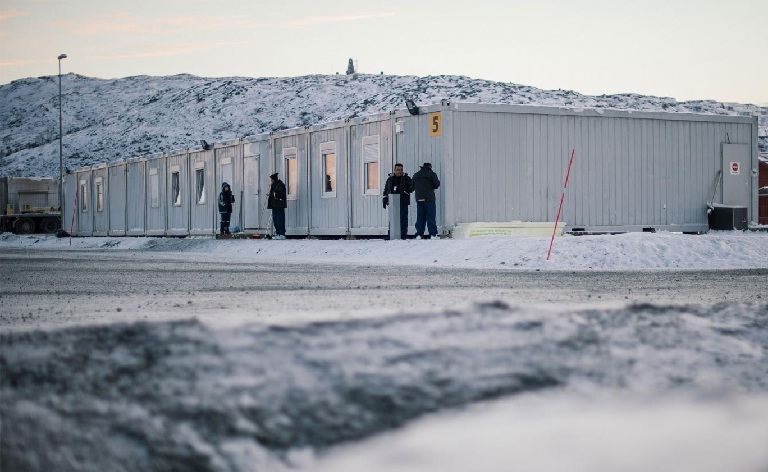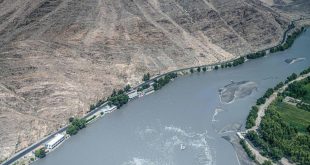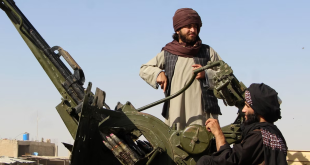By Farhad Naibkhel-KABUL: Amnesty International (AI) said the increasing force return of Afghan asylum-seekers by European Union to Afghanistan which it described it as a dangerous country due to worsening security situation, is unlawful and a brazen violation of international law, and must stop immediately as it puts the returnees at serious risk of torture, kidnapping, death and other horrors.
Amnesty International released a report on Thursday, revealing that they returned nearly 10,000 Afghans to Afghanistan between 2016-2017.
European governments have put thousands of Afghans in harm’s way by forcibly returning them to a country where they are at serious risk of torture, kidnapping, death and other human rights abuses, Amnesty International said today in a new report.
At a time when civilian casualties in Afghanistan are at their highest levels on record, the new report says, European Union are forcing increasing numbers of asylum-seekers back to the dangers from which they fled, in brazen violation of international law.
The new report, Forced Back to Danger: Asylum-Seekers Returned from Europe to Afghanistan, details harrowing cases of Afghans who have been returned from Norway, the Netherlands, Sweden and Germany only to be killed, injured in bomb attacks, or left to live in constant fear of being persecuted for their sexual orientation or conversion to Christianity.
“In their determination to increase the number of deportations, European governments are implementing a policy that is reckless and unlawful. Willfully blind to the evidence that violence is at a record high and no part of Afghanistan is safe, they are putting people at risk of torture, kidnapping, death and other horrors,” said Anna Shea, Amnesty International’s Researcher on Refugee and Migrant Rights.
Afghans forcibly returned from Europe, the report says, include unaccompanied children and young adults who were children at the time when they arrived in Europe. Several people Amnesty International interviewed for the report were sent to parts of Afghanistan they had never known, despite the dangerous situation and impunity for crimes such as torture.
According to official EU statistics, between 2015 and 2016, the number of Afghans returned by European countries to Afghanistan nearly tripled: from 3,290 to 9,460. The returns correspond to marked fall in recognition of asylum applications, from 68% in September 2015 to 33% in December 2016.
At the same time, the numbers of civilian casualties have risen, according to statistics from the United Nations Assistance Mission in Afghanistan (UNAMA).
In 2016, according to UNAMA, 11,418 people were killed or injured. Attacks on civilians took place in every part of the country and most of them were carried out by armed groups, including the Taliban and the so-called Islamic State. In the first six months of 2017 alone, UNAMA documented 5,243 civilian casualties.
On 31 May, in one of the largest attacks in Kabul’s history, more than 150 people were killed and twice as many injured when a bomb exploded near several European embassies.
In the report documented that a returnee Sadeqa (not her real name) and her family fled Afghanistan in 2015 after her husband Hadi was kidnapped, beaten and released in return for a ransom. Hazarding a months-long journey, they arrived in Norway with hopes of finding a safe future. The Norwegian authorities denied their asylum claim and gave them a choice between being detained before being deported or being given EUR 10,700 to return “voluntarily.”
A few months after returning to Afghanistan, Sadeqa’s husband disappeared. Days passed without any knowledge of his whereabouts. Hadi had been killed. Sadeqa believes his kidnappers murdered him and now even fears visiting his grave.
Amnesty International also quoted another returnee, the Farhadi family was also forcibly returned from Norway, in October 2016. The following month they were near the Baqir-ul-Uloom mosque in Kabul when it was bombed, killing at least 27 people. Responsibility for the attack was claimed by the armed group calling itself Islamic State.
The intensity of blast was such that Subhan Farhadi, then two years old, fell from his mother’s arms and was injured. When the family returned home, Subhan began to bleed from his ears. He continues to suffer pain in one ear, several months after the attack.
Farid (not his real name) fled Afghanistan with his family when he was a child. They first made their way to Iran and he subsequently fled alone to Norway, where he converted to Christianity. In May 2017, he was deported to Kabul – the site of the highest levels of violence in Afghanistan, accounting for 19% of all civilian casualties in the entire country in 2016.
Farid had no memories of Afghanistan. Now, he lives in fear of persecution, in a country where armed groups including the Taliban have targeted people for converting to a different faith from Islam. “I am scared,” he told Amnesty International. “I don’t know anything about Afghanistan. Where will I go? I don’t have funds to live alone and I can’t live with relatives because they will see that I don’t pray.”
Omar Waraich, Deputy Director for South Asia of Amnesty International, said that there is no part of Afghanistan can be considered safe.
He added, “We found that number of European government claimed that Kabul is safe, but don’t forget big bombing that attack took place in Kabul in May, killing and wounded dozens of Kabul citizens.
He called on the government to stop cooperation with those countries in the aspect of deporting Afghans.
Afghan Researcher for Huria Musadiq, said “the deportation comes at a time when civilian casualties increasing, Internal Displaced Persons (IDPs) is also getting high.”
According to her, Afghans are being deported based on documents signed between Afghan government and the European Union and some other European countries.
She said “still a large number of Afghan asylum-seeker is at the brink of deportation in European courtiers.”
She added that Amnesty International is concerning over politicization of deportation of Afghan asylum- seekers in Europe.
Amnesty International wants the Afghan government and the International Community to suspend deportation of Afghan asylum-seekers from Europe, she added.
She added that beside insecurity, lack of capacity in the government and scarcity of live facilities are other problem for returnees.
Government can’t help IDPs, how it will be able to help European retunes, she mentioned.
She added that European Countries decision are fully in paradoxes, one European country says that no part of Afghanistan is safe, but another country says all part of Afghanistan is safe, thus the Afghan asylum-seeker must be returned.
She added that also some European countries believe that Kabul is safe, but unfortunately Kabul had the highest civilian casualty in 2016.
Miss Musadiq said that Afghan government has not accepts returnees at least not allow the deportees plane to land in Afghanistan.
 Afghanistan Times Latest News and Analysis from Afghanistan and the Region
Afghanistan Times Latest News and Analysis from Afghanistan and the Region




